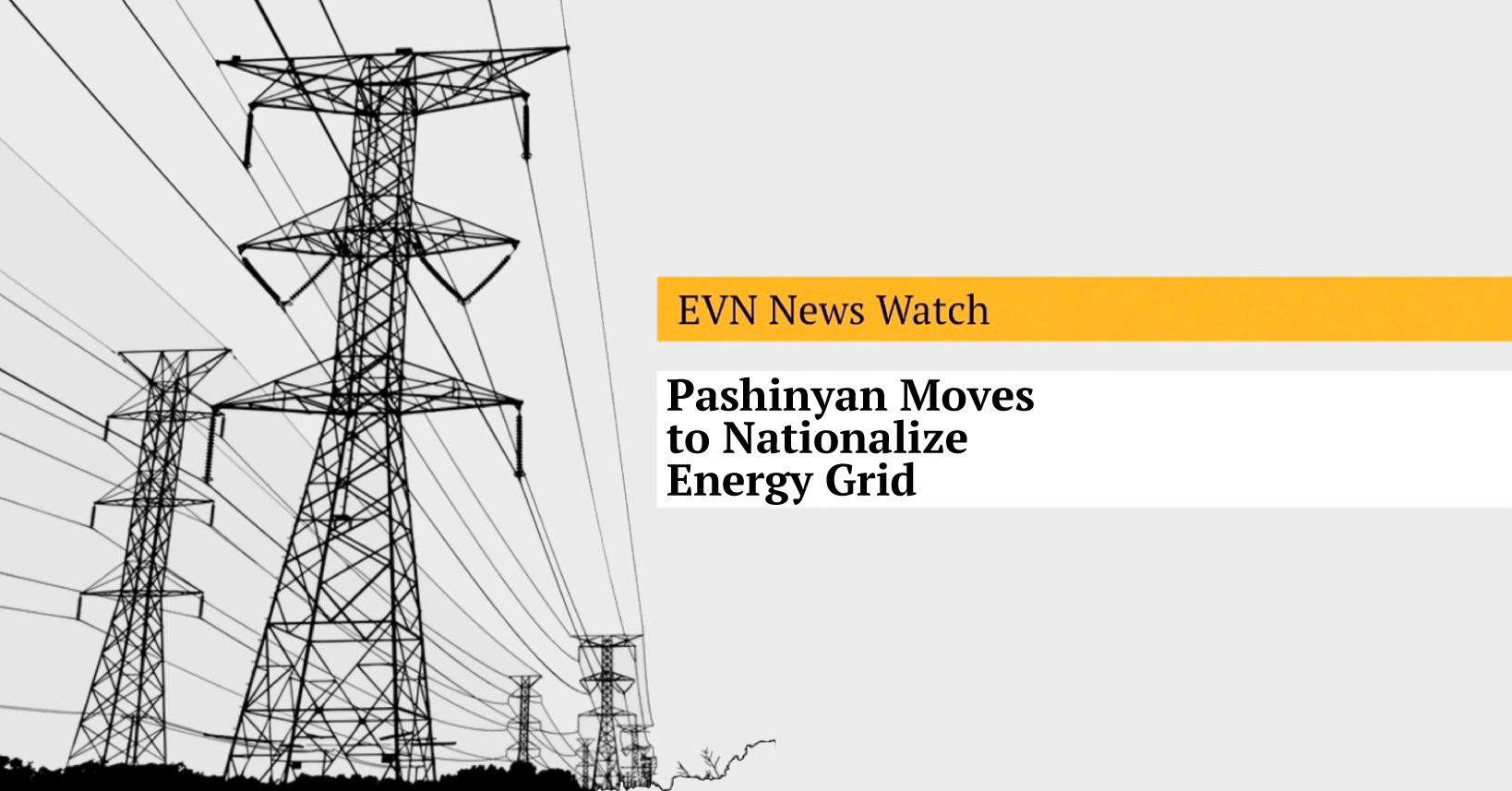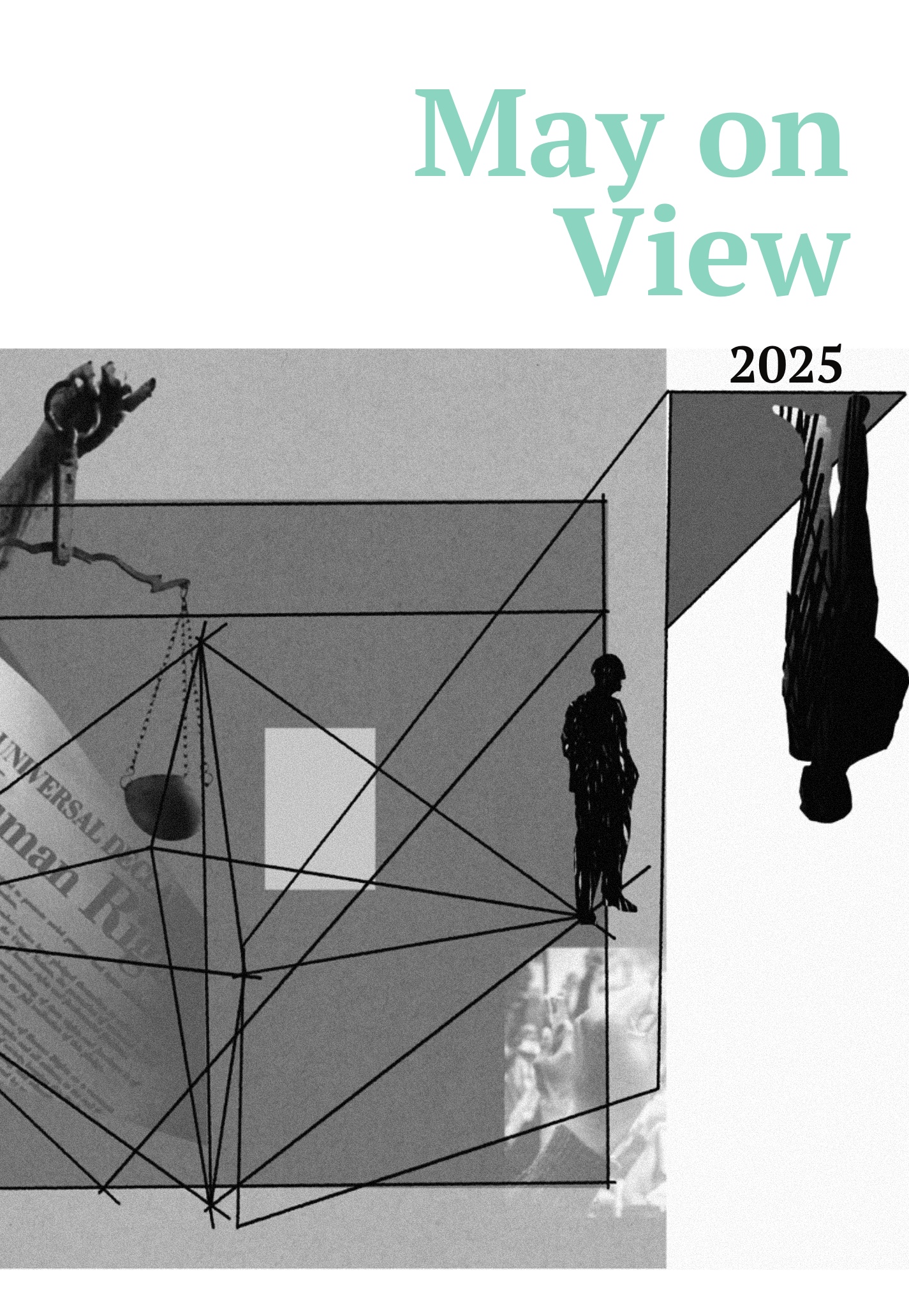
Listen to the article.
A chain of events involving Prime Minister Nikol Pashinyan, the Armenian Apostolic Church and Russian-Armenian billionaire Samvel Karapetyan is escalating tensions amid a volatile mix of politics, religion and foreign influence, and could potentially lead to the nationalization of Armenia’s national power grid.
On June 17, Karapetyan, whose Tashir Group owns the Electric Networks of Armenia (ENA), the country’s electricity distribution company, issued a statement denouncing what he described as a campaign by Pashinyan against the Armenian Church. The Prime Minister has accused Catholicos Garegin (Karekin) II, the supreme head of the Armenian Church, and other senior clerics of violating their vows of celibacy, and thus violating the laws of the Church, and accordingly called for their removal. Critics say the government’s campaign against the Church, which has been highly critical of the government, is politically motivated and intended to weaken one of Armenia’s most influential institutions.
In a sharply worded interview with news.am, Karapetyan declared: “A small group … has attacked the Armenian Church, the Armenian people. Since I have always been on the side of the Armenian Church and the Armenian people, I will have direct participation. If the political figures don’t succeed, then we will participate in all of this in our own way.”
It remains unclear whether Karapetyan’s vow to “participate” referred to direct political intervention or a broader show of support for the Armenian Church amid its standoff with the government. Karapetyan, long seen as a Kremlin-aligned oligarch with major investments in Armenia, has a history of criticizing Pashinyan and his policies. In the aftermath of Armenia’s defeat in the 2020 Karabakh war, Karapetyan joined calls for Pashinyan’s resignation. However, the two later held meetings in June 2021 and July 2022. Since then, Karapetyan has repeatedly denounced Pashinyan’s increasingly Western-leaning foreign policy, especially the growing distance between Yerevan and Moscow. He is also a major benefactor of the Armenian Apostolic Church, having funded the restoration of the Etchmiadzin Cathedral and the construction of the large Armenian cathedral in Moscow.
Pashinyan hit back swiftly, calling Karapetyan and high-ranking clergy “pornkabaro”—a derogatory term implying lewdness and moral corruption, and accused them of trying to undermine state sovereignty. He vowed that he would “render [them] passive”. Shortly after Karapetyan’s statement, National Security Service officers raided his villa in Yerevan. His relatives and supporters gathered in front of his house to put up “resistance” against law enforcement.
As tensions escalated, Pashinyan delivered a thinly veiled warning, declaring that “the taste of the state will remain in your mouths,” a threat to those he views as meddling in Armenia’s affairs. His spokesperson, Nazeli Baghdasaryan, claimed Karapetyan has “decided to interfere in Armenia’s internal affairs with the classic ‘methodology’ from the north,” in reference to Russia. “Their attempts to make Armenia a peripheral province are futile,” she said. Pashinyan himself called Karapetyan a “scoundrel” and dared him to come out of hiding.
In the early hours of June 18, Karapetyan was detained by law enforcement. He was formally charged with making public calls to seize power and placed in pretrial detention for two months by a court order.
As he was being detained, Karapetyan declared, “I don’t give a damn about them or their grid. Everything will be fine, the people will still have their say, they will understand that they made a mistake.”
Later that day, Pashinyan insisted that Karapetyan’s remarks were about the Armenian state and called for the immediate nationalization of Electric Networks of Armenia. He defended the dramatic moves as necessary to protect state sovereignty. “An attempt was made to create the impression that some people could come to Armenia from somewhere and do something in their own ways,” he said, referring to Karapetyan’s earlier remarks. “I will not tolerate this.” Pashinyan also pointed to Karapetyan’s “don’t give a damn” remark as evidence of apparent mismanagement. “These people don’t even consider ENA theirs, and they don’t give a damn about that strategically important institution, its consumers and employees, because if ENA isn’t theirs, then whose is it? It belongs to its consumers, to its workers.”
On the same day, the utilities regulatory body fined the ENA around $26,000 (10 million drams) for violating electricity distribution network rules and retail market trading regulations. The ENA was also fined a similar amount earlier this March and $52,000 last August.
Reactions
His lawyer condemned the charges of incitement to seize power as “completely unlawful”, while Karapetyan himself issued a defiant statement: “I will never renounce my principles and values, because at their foundation lies Armenia itself—boundless respect and love for my homeland, our traditions, our history, our Church.”
Karapetyan’s arrest prompted widespread criticism by Russia, the Armenian opposition, and the Armenian and Russian churches. Russian Foreign Ministry spokesperson Maria Zakharova said Moscow is “closely monitoring the situation” involving Karapetyan, a Russian citizen who is being threatened with arrest “under strange pretexts.” She added that Russia would provide him with legal support to ensure his rights are upheld. Several members of the Russian Duma also spoke out against Karapetyan’s arrest.
Prominent Kremlin-aligned media figures escalated the rhetoric. Margarita Simonyan, editor-in-chief of “Russia Today”, called Karapetyan “a true champion of all Armenians” and accused Pashinyan of persecuting national figures. Another government propagandist, Vladimir Solovyov, described Karapetyan as a close friend on the state-run TV channel and went on to attack Pashinyan by calling him “Turkol”—a slur implying betrayal in favor of Turkey, and threatening that Armenia “might cease to exist as an independent country.”
Domestically, Karapetyan received support from the parliamentary opposition led by former presidents Robert Kocharyan and Serzh Sargsyan, former Prime Minister and Gazprom Armenia director Karen Karapetyan (unrelated), and former Pashinyan ally and leader of Bright Armenia party Edmon Marukyan. The Armenian Church, already in open conflict with the government, issued two statements condemning the authorities. Two bishops, the prelates of Gugark (Lori) and Moscow dioceses personally attended his court hearing in a visible show of solidarity.
Prominent civil society activists have also chimed in, one even claiming that before Karapetyan’s remarks on the church, he was already aware of Karapetyan’s decision to enter Armenian politics and participate in the upcoming parliamentary elections set for June 2026, suggesting that authorities had known about his intentions even earlier and criticized the “weak charges” against Karapetyan.
Daniel Ioannisyan argued that Karapetyan either knew of Pashinyan’s directive and sought to prevent ENA’s seizure or was sent by the Kremlin to Armenia as part of a hybrid operation. He referred to the recent report by “Vedomosti” that the Kremlin has assigned Sergei Kiriyenko, Putin’s First Deputy Chief of Staff, to oversee Moscow’s interference in Armenian domestic politics.
A pro-government commentator compared Karapetyan to Georgia’s de facto leader Bidzina Ivanishvili, who made his fortune in Russia and in 2012 succeeded in ousting Mikheil Saakashvili from power. Ivanishvili’s Georgian Dream has in recent years taken a conciliatory stance toward Moscow and strained relations with the West. Georgia’s opposition sees him as a Russian puppet.
Nationalization
The push toward nationalization appears to have been set in motion weeks before Karapetyan’s public intervention. The “Armenian Times”, a newspaper linked to the Pashinyan family, cited an internal government document dated May 21, in which the prime minister expressed frustration over frequent power outages, describing the situation as “an energy crisis.” He requested specific proposals within a month and threatened nationalization of the ENA if it failed to compensate consumers.
Speculation about a possible government takeover of ENA had already surfaced last year after repeated outages. At the time Karapetyan dismissed the rumors as baseless.
ENA was privatized and sold to Karapetyan’s Tashir Group in 2015. The takeover was conducted through offshore companies and was estimated at $720 million. According to a February 2025 declaration, Karapetyan and his son, Sargis, are the majority beneficial owners, controlling 60.8% shares of the company.
The grid company was set up in 2002 through the consolidation of several smaller companies and was later acquired in 2006 by RAO UES International CJSC (Inter RAO), a majority-state owned Russian conglomerate. At the time of Karapetyan’s acquisition, the utility was considered heavily mismanaged.
Karapetyan, whose wealth is estimated at $4 billion, made his fortune in Russia and has a significant presence in the Armenian economy, namely the energy sector. In addition to ENA, his Tashir Group controls two other strategic assets: the Hrazdan Thermal Power Plant and the Sevan-Hrazdan Cascade, a series of seven hydropower plants.
Pashinyan’s call to (re)nationalize the grid quickly attracted criticism by different circles. The economist Haykaz Fanyan warned that the move will “inevitably have a negative impact on the country’s investment attractiveness” and may set a dangerous precedent. Former parliamentarian and lawyer Taron Simonyan echoed this view.
The Russian state-run RIA news agency quoted Yevgeny Mikhailov, director of the Center for Strategic Studies of South Caucasus, as calling it yet another step in Yerevan’s move away from Moscow. “They are trying quietly, using Western support, to seize Russian assets and persecute Russian businessmen,” he said.
The mechanisms of potential nationalization remain unclear. Former Deputy Prime Minister Vache Gabrielyan, an economist, argued that nationalization does not exist in Armenian legislation and may require a separate law. He warned that such a risky move could prompt international arbitration disputes. Energy specialists interviewed by opposition media raised concerns about the ability of the government or new investors (if reprivatized) to make substantial investments and warned of higher electricity tariffs for consumers.
Factor TV reported that 100% of ENA shares are pledged as collateral to international financial organizations, including the European Bank for Reconstruction and Development (EBRD) and the Asian Development Bank, which was approved by the authorities in 2021 and totaled around $125 million. Nationalization may require the state to assume these financial obligations.
The Russian state-run Sputnik Armenia argued that ENA appears to be meeting its regulatory obligations and performance standards and there may not be clear legal grounds for nationalization based on performance failures, as the company has been fulfilling its license requirements and making substantial investments in network improvements.
News Watch
Armenians Want Peace, Expect War
A recent CRRC survey reveals Armenians overwhelmingly desire peace but expect war, amid deep security fears, political disillusionment, and shifting geopolitical loyalties. The data highlights public anxiety, fading optimism, and the complex legacy of war and diplomacy.
Read moreDeja Vu in Gyumri: Controversial Former Mayor Returns
Vardan Ghukasyan, a controversial former mayor under criminal investigation, has returned to power in Gyumri with the backing of opposition factions, despite finishing second in the vote. The ruling party boycotted the vote and warned of an impending political crisis. Hranoush Dermoyan looks at Ghukasyan’s murky past.
Read moreArmenia and Azerbaijan Conclude Peace Talks
Armenia and Azerbaijan have finalized peace negotiations, with Yerevan accepting Baku’s proposals on the withdrawal of third-party forces on the border and all international legal claims. However, Baku insists Armenia amend its constitution to remove alleged territorial claims as a prerequisite to signing a peace treaty.
Read moreSlower Growth, Booming Trade, Declining Births: Armenia in 2024
Armenia’s economy continued to grow in 2024, though at a slower pace, while foreign trade surged. Inflation remained low, and employment reached record levels. However, birth rates declined significantly, and net migration remained negative, reflecting broader demographic shifts. Hovhannes Nazaretyan explains.
Read morePrimer: Armenia’s Ongoing Military Reforms
Armenia's ongoing military reforms, initiated after the 2020 Artsakh War, focus on modernizing and professionalizing the Armed Forces to meet the country’s security challenges. The newly released 10-year Concept outlines strategies for structural transformation, improving education, incentivizing service and enhancing civilian oversight.
Read more






